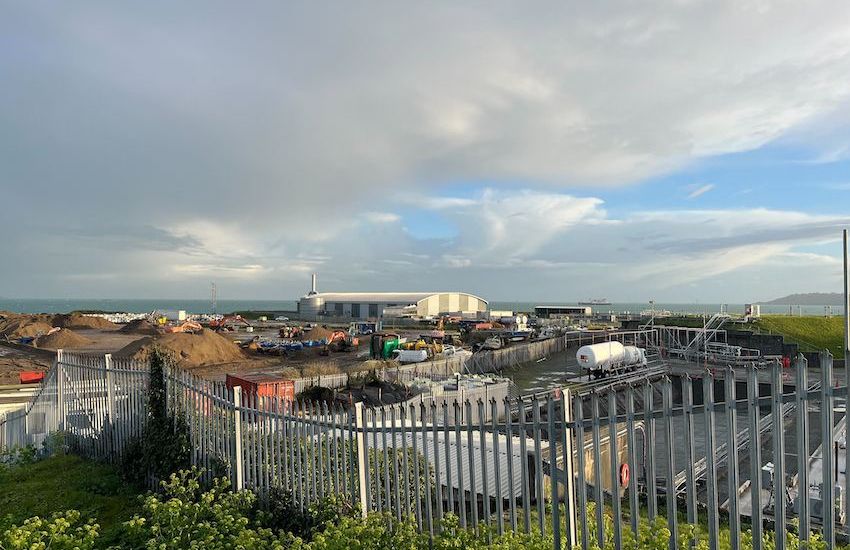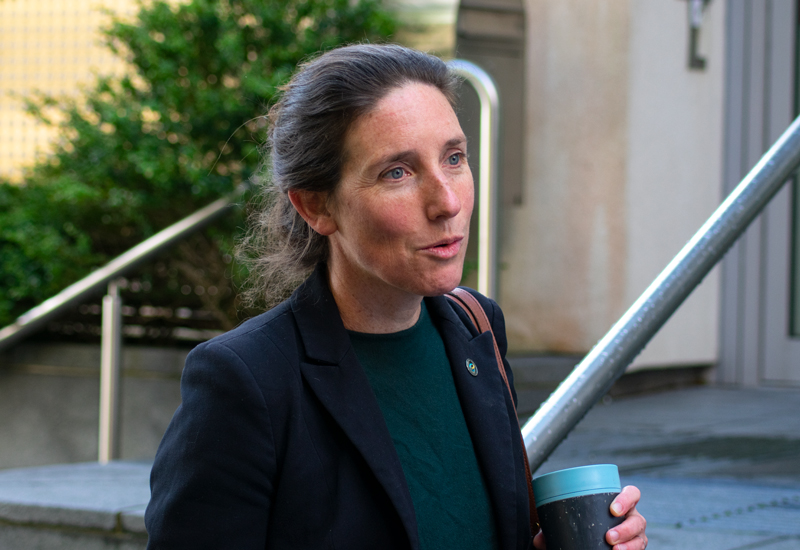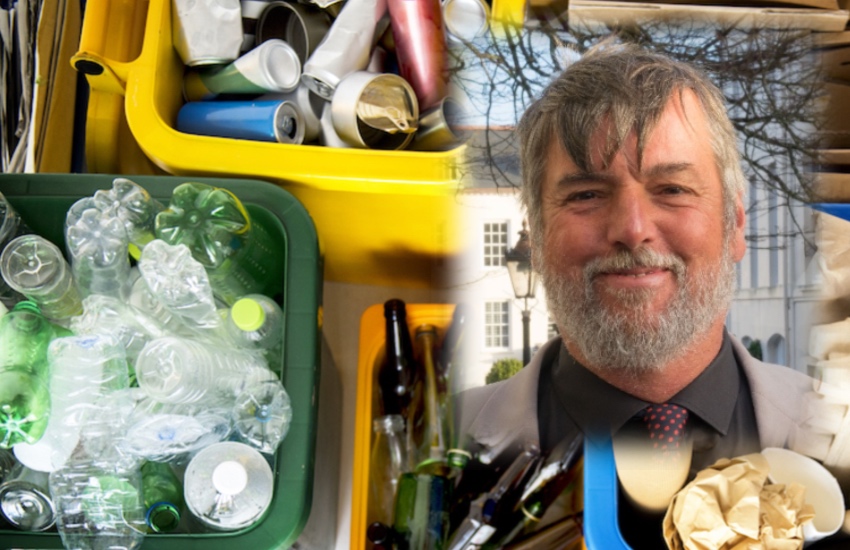


The committees which oversee the island’s waste management system have issued stark warnings against any changes coming from a group hoping to bring about a rubbish rebellion.
A group of deputies led by John Dyke, and including the Policy & Resources President Lyndon Trott, are petitioning the States next week to handover responsibility for where to transfer household and commercial waste to from the States Trading Supervisory Board to the parish douzaines.
It also wants investigations into whether waste could be processed locally rather than being mostly packaged and exported, and for no contracts to be signed that would prevent this.
They argue the current arrangement is anti-competitive and prevents entrepreneurialism from reducing the cost of disposing of food and other solid waste.
But ahead of the debate key committees have published their views on the Requête, with heavy criticism levelled at the plans.
The parishes themselves are also reported to be holding their noses on the idea of waste devolution following a meeting with the STSB and some of the requerants in February.
Environment & Infrastructure, responsible for the handling of solid waste, said if successful it would result in higher costs for the taxpayer while threatening the viability of public waste sites and Guernsey’s compliance with international health regulations.
The STSB, which acts as the waste disposal authority, said it would hamstring the States in future contract negotiations and undermine its commercial interests while not guaranteeing any cost saving for the public.
And the Development & Planning Authority, advising on planning considerations, said the wording would go against planning laws, specifically by putting waste management sites outside of areas zoned for those purposes

Pictured: Deputy Lindsay de Sausmarez.
E&I President, Deputy Lindsay de Saumarez said changing the current waste disposal arrangements would come with an “increased risk, responsibility, and administrative burden for the parishes as well as an increased administrative burden for officers of the States, the Committee, and the States of Deliberation as a whole.
“While these resolutions could potentially benefit some private operators, the States and the community more generally would in all likelihood have to shoulder additional costs.”
She added that it could take years to develop private sites into ones that would comply with planning and environmental requirements, with licences which must be effectively issued by the States Assembly.
Parishes would also be unlikely to have enough resources to adequate assess the impacts on air and water quality, biodiversity, and carbon emissions to comply with internal standards
“The way that we deal with waste is something that is scrutinised internationally, including in our trade agreements, which encourage best practice in waste management and pollution control, so it is important to balance aspirations to encourage entrepreneurialism (as cited in the Requête) with the need to comply with this level of essential regulation,” she said.

Pictured: Deputy Peter Roffey.
STSB President, Deputy Peter Roffey chastised the proposal saying it would impact the States’ procurement processes damaging future commercial negotiations over the handling of waste without a guarantee of reduce public sector costs.
“It seeks to amend the current arrangements, seemingly with no appreciation of the consequence of the proposed changes, and without any evidence it will deliver a better outcome. It will not. It is unnecessary and reckless, and will lead to poor procurement. It will also undermine the WDA’s ability to fulfil its legal duty of ensuring adequate provision of facilities and services,” he said.
“It suggests current arrangements risk creating ‘a de facto monopoly for food waste’. That is confusing a single supplier contract, awarded through open tendering, with a ‘monopoly’. They are not the same.
“The whole premise of the Requête is that giving parishes the power to contract directly for the processing of waste will necessarily deliver cost reductions. That too is similarly flawed and not supported by any evidence.
“Were the Requête to succeed, and in future parishes did wish to contract directly with a service provider for processing, treatment and/or disposal of waste, they would still require a robust process by which to evaluate potential options.
“Any potential financial benefits are small and uncertain, and the risks are high. There are also far less positive scenarios, as the Requête proposals are not limited to food waste and have the potential to undermine arrangements for other waste streams.”
Deputy Roffey added that a contract has recently been agreed with the UK largest operator which converts food waste into bioenergy which also leaves open the possibility of a small amount of food waste being used for local commercial purposes if demanded.

Pictured: Deputy Victoria Oliver.
DPA President, Deputy Victoria Oliver said new private sites would be “unlikely to be approved through the land use planning process, regardless of whether specified for that purpose by a Douzaine.
“Hence, the approved States’ planning policy means that if the proposal is not part of the agreed States’ Waste Strategy, then the Douzaine can only point to the designated Key Industrial Areas or Key Industrial Expansion Areas.”
Any new sites would also require an extensive and costly Environmental Impact Assessment.
Parish Douzaines were seemingly not consulted on the proposal and haven’t reacted warmly to the additional responsibility should the States back the Requête.
Deputy Heidi Soulsby, Vice-President of Policy & Resources, wrote: “In line with the observations made within the [committee] responses, there did not appear to be a significant desire from within the parishes for current arrangements to change."
Deputy de Sausmarez noted: “Officers have attended parish meetings and the feedback given to the Committee suggests that the majority of parishes had not been consulted on the content of the Requête or, indeed, expressed any desire to take over responsibility for waste disposal."
Deputy Roffey concluded: “It is also clear that there is very little, if any, appetite among the parishes for such a change. A number have instead openly expressed satisfaction in how the current system works, which undermines the argument for change."
The States will debate the Requête at the next Assembly meeting which starts on 20 March.
You can read the letters of comment HERE.
Comments
Comments on this story express the views of the commentator only, not Bailiwick Publishing. We are unable to guarantee the accuracy of any of those comments.